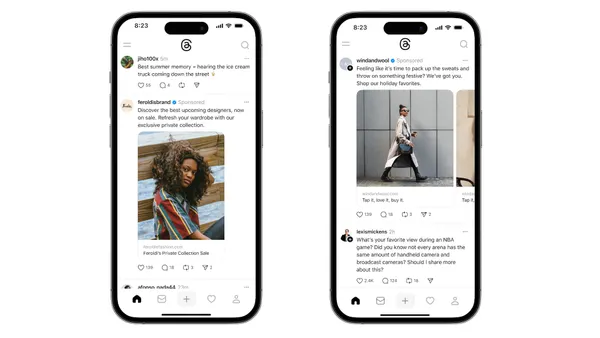Brief:
- Voice commerce is on the rise as more U.S. households own voice-enabled devices, with smart speaker ownership jumping to 27% of consumers this year from 14% a year earlier, per a study by Visa and publisher Pymnts.com.
- About one-third (28%) of respondents who own voice-activated speakers used them to make a purchase in the past seven days. Groceries (5%) and food delivery (4%) were the most popular categories for voice ordering, the survey found.
- Amazon makes the most popular smart speaker devices, with its six models of the Echo having a 63% market share among all U.S. smart speakers in use, compared to 17% for Google's three models and 4% for Apple's HomePod, per a separate study by Strategy Analytics.
Insight:
Visa and Pymnt.com's study provides further evidence that voice commerce is growing in tandem with smart speaker ownership. The study follows a Nielsen Research survey that found that nearly 25% of U.S. homes contained a smart speaker at the end of Q2 2018, along with a report by Voicebot.ai and Voysis that saw 26% of smart speaker owners reporting having made a purchase by voice.
While the smartphone market has reached a saturation point in the U.S., smart speakers are still in an early, high-growth stage. Voice-powered speakers are transforming homes into "commerce command centers" as people shift their purchases to the devices, per Visa and Pymnt.com's survey of 2,800 Americans. Voice commerce is expected to become even more prominent, surging 1,900% to $40 billion in 2022 from $2 billion today, according to data from OC&C Strategy Consultants.
Meanwhile, the Strategy Analytics survey of smart speaker owners finds that while Amazon and Google dominate the market, there's still room for other manufacturers of the voice devices to get a foothold in U.S. homes. When asked to name one brand they would choose for their next smart speaker, 54% of people said either Amazon, Google or Apple, leaving about half of the market open to popular competitors like Bose, Samsung and Sonos. This suggests that marketers should make their voice commerce applications platform-agnostic as to not alienate potential customers based on their device choices.












